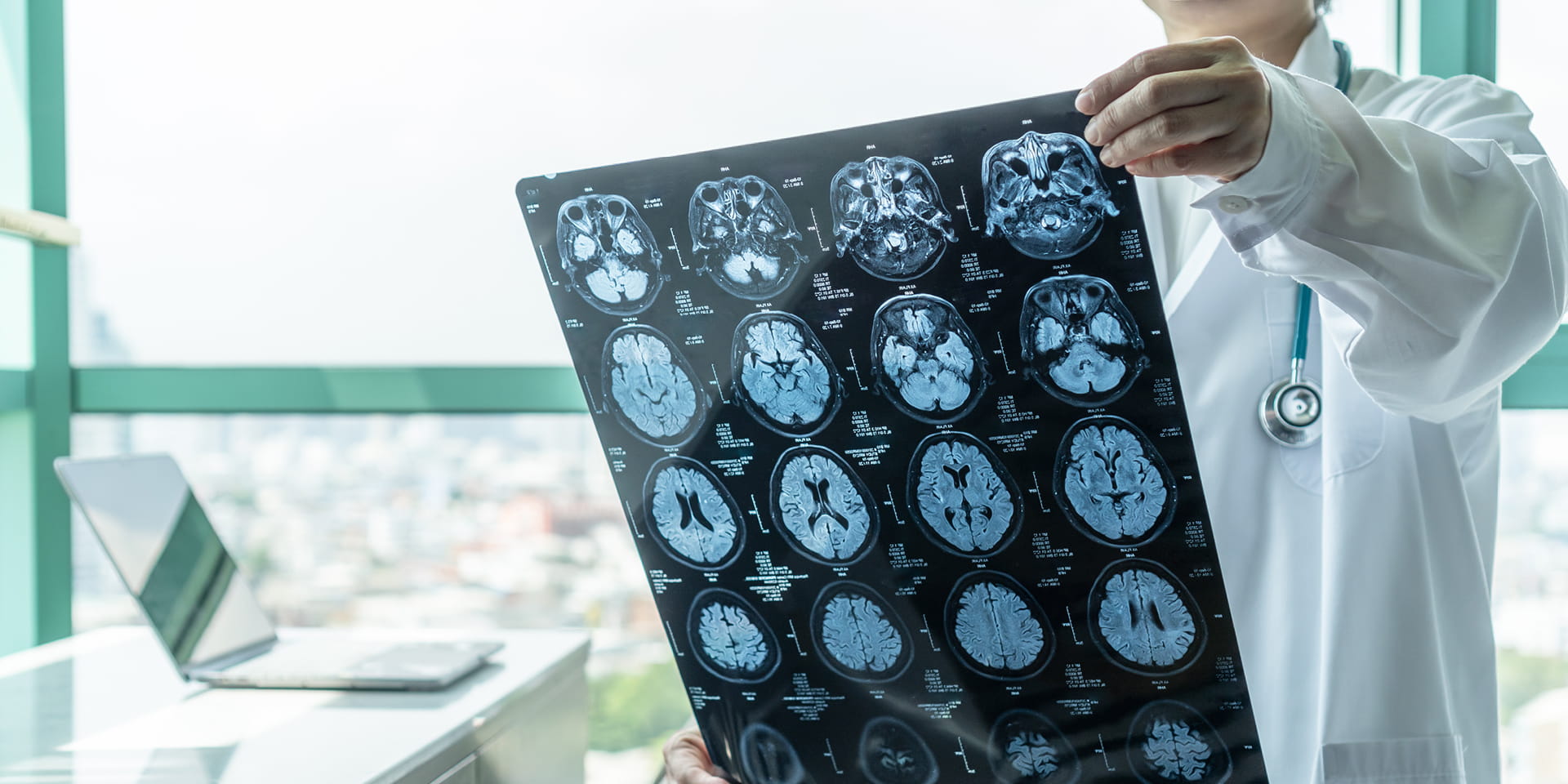May is National Stroke Awareness Month. Knowing the symptoms of stroke and activating emergency services can speed up life-saving and brain-saving care.
Every 40 seconds someone in the United States suffers a stroke, and every four minutes someone dies of stroke. Stroke is the fifth leading cause of death in the U.S., according to the American Stroke Association. Stroke is the leading cause of adult disability in the U.S.
Know the symptoms of stroke and get treatment right away.
According to the American Stroke Association, stroke is a "brain attack" that can happen to anyone at any time. Stroke occurs when blood flow to an area of the brain is cut off and brain cells begin to die.
Outcome for stroke depends on which part of the brain is affected and how much of the brain is damaged. Stroke is an emergency and responding quickly and getting treatment fast are crucial factors.
Symptoms of Stroke
To recognize the symptoms, the American Stroke Association uses the acronym FAST:
- F ace: Uneven smile, facial drooping.
- Arms: One arm is weaker than the other.
- Speech: Slurred or nonsensical speech. Ask the person to say their name or a simple sentence.
- Time: “Time is brain.” Call 9-1-1 immediately.
Getting Faster Treatment
There are several reasons why calling 9-1-1 is the best thing to do in a stroke emergency. Most EMS (Emergency Medical Services) providers are assessing patients for stroke before arrival at the hospital using the Cincinnati Pre-Hospital Stroke Scale or the RACE scale to evaluate stroke severity.
"EMS providers are trained to recognize stroke based on clinical judgment and use of the scale," says Scott Henley, deputy chief of operations for Central Bucks EMS.
The ambulance squad works closely with Doylestown Health on getting patients faster treatment for time-critical emergencies like heart attack and stroke. Central Bucks and about 75 percent of local ambulance squads can transmit EKG's to the Emergency Department, confirming a heart attack and alerting providers to prepare for the patient's arrival.
When emergency medical personnel suspect a stroke, they notify Doylestown Health's Emergency Department with a "pre-hospital stroke alert." The alert makes available the CT scan in the Emergency Department and notifies stroke experts (neurologist, radiologist, laboratory and pharmacy) to be ready for the patient's arrival.
Stroke Alerts Save Time
With an alert from the ambulance, patients get faster care at the hospital. In one case, the physician was at the patient's bedside when the patient arrived. The patient had a CT scan 10 minutes after arrival. The patient received the clot-busting drug Alteplase IV r-tPA 28 minutes after arriving at the hospital. The goal is 45 minutes or less.
Scott says that since CB EMS started doing pre-hospital stroke alerts, the door-to-tPA times have dropped. "We work really closely with Doylestown Hospital's Stroke Task Force. I have a great relationship with them. It is so important to have a good relationship with the local hospital."
Bottom line: Know the symptoms of stroke and call 9-1-1 right away if you suspect someone is having a stroke. Faster treatment can mean better outcomes and a better quality of life.
Education and Support
Doylestown Health Stroke Services offers educational classes, screening events and support group meetings for stroke survivors and their families.
About Doylestown Health
Doylestown Health is a comprehensive healthcare system of inpatient, outpatient, and wellness education services connected to meet the health needs of the local and regional community. The flagship of Doylestown Health is Doylestown Hospital, a not-for-profit, community teaching hospital with 245 beds and a medical staff of more than 600 providers who deliver the highest quality care in over 50 specialties. Renowned locally, regionally, and nationally, Doylestown Hospital provides superior healthcare and offers advanced surgical procedures, innovative medical treatments, and comprehensive specialty services. Serving Bucks County for over 100 years, Doylestown Hospital is proud to educate and train the next generation of physicians through its family medicine residency program. Ranked as one of the World’s Best Hospitals by Newsweek and 9th in Pennsylvania, Doylestown Hospital is distinguished in both infection prevention and patient experience. Doylestown Hospital is the only hospital in Pennsylvania to achieve 18 consecutive ‘A’ grades for patient safety from Leapfrog Hospital Safety Grade. Learn more at doylestownhealth.org.
